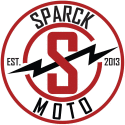O/A is welding obsolescence. Nobody does that anymore, except artist types, mainly for the invisibility/attractiveness of of the welds. Don't think you can even weld Al with O/A. Agreed, SMAW is good for a start (Borz, don't waste your money on a 110 stick machine. Decent 220 machines are easy to find used, cheap, and duty cycle will more than make up for any expense/trouble running the elec, trust me).
I used to work for a structural/building supply steel supplier, and spent hundreds of hours with a stick welder. Its a good foundation. I also took a O/A class at my community college, and the best part of the class (since I could already weld - coupled with the fact that the instructor was the welding teacher from my high school), was that it was taught in the only welding classroom/lab at the college... every bit of metal fab equipment you could dream of, and we were allowed to use any of it after instruction. What you can expect in a community college welding class, regardless of which type, is instruction (it takes 3min to learn how to weld), followed by copious amounts of practice time. Instructor spends a lot of time standing around bored, drinking coffee... I spent lot of time playing with the plasma cutter, for my own enjoyment.
Here's the option you want to investigate: Talk to the instructor, and ask him (her?) if you may audit the class. You won't receive a grade, or credit (not entirely sure about credit), but if the instructor is willing, you could sample all the different methods, build some skills & decide which is best for you. It would allow you to gain access to all the equipment. You also won't be bound to waste your time doing stupid assignments or projects trying to pass the course with a grade. Find out how to get in touch with the instructor & explain your position.
When I took an O/A class at WCC with my brother (he & I also did a couple stained glass classes together, followed by pub visits after every weekly class), he & I were the only 2 "college types" in the class... all the rest were workers, trying to become more employable... both of us in khakis, with similar goatees & neat haircuts... I'm sure all the other students conferred about our homosexuality during breaks. Instructor quickly figured out I could weld (I brought my own equipment -shield, etc from work) & didn't waste my time with classwork... essentially turned me loose in the shop.








